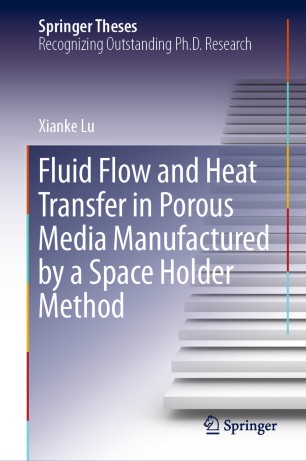

Most ebook files are in PDF format, so you can easily read them using various software such as Foxit Reader or directly on the Google Chrome browser.
Some ebook files are released by publishers in other formats such as .awz, .mobi, .epub, .fb2, etc. You may need to install specific software to read these formats on mobile/PC, such as Calibre.
Please read the tutorial at this link: https://ebookbell.com/faq
We offer FREE conversion to the popular formats you request; however, this may take some time. Therefore, right after payment, please email us, and we will try to provide the service as quickly as possible.
For some exceptional file formats or broken links (if any), please refrain from opening any disputes. Instead, email us first, and we will try to assist within a maximum of 6 hours.
EbookBell Team

4.8
14 reviewsThis book focuses on the effects of the material, porosity, pore size and pore shape on flow behaviour and heat transfer in microscale porous media manufactured using a space holder method. It also describes a novel approach to studying flow behaviour in non-transparent materials such as porous metals via flow visualization in transparent media that mimic the porous structure.
The book employs a combination of microparticle image velocimetry – a modern, advanced technique – and pressure drop measurement – a more traditional method – that makes the mechanistic study of several phenomena possible. It covers the identification of various flow regimes and their boundaries, velocity profiles on the microscale, the heat transfer coefficient under forced convection, and the correlation between flow behaviour on the pore scale and the convective heat transfer performance of the porous media. Understanding the fundamentals of porous flow, especially on the microscale, is critical for applications of porous media in heat exchangers, catalytic convertors, chemical reactors, filtration and oil extraction. Accordingly, this book offers a valuable resource for all researchers, graduate students and engineers working in the areas of porous flow and porous materials.